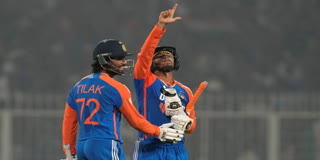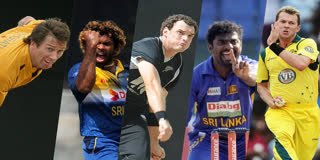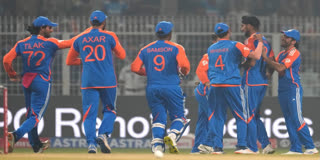Justin Henin gets candid
But being a coach is a completely different job. There is no guarantee that if you’ve been a champion, you will be a good coach. It is not you anymore, it is your player.
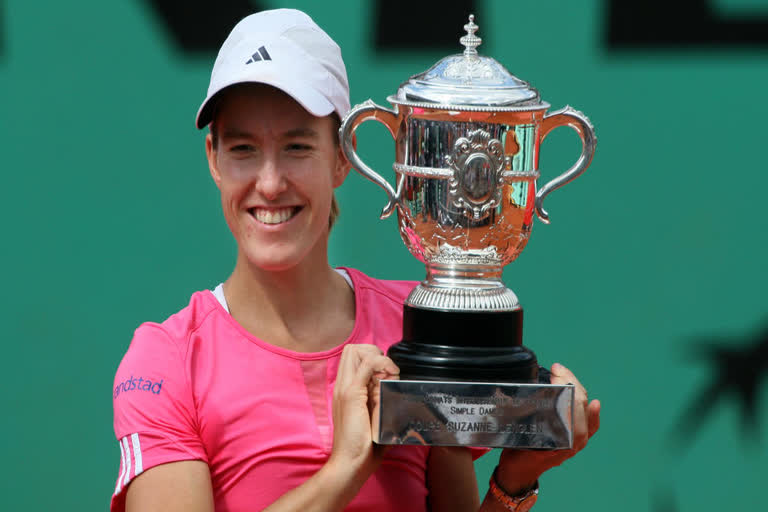
New Delhi : One of the former tennis queens in the modern era, Justin Henin wouldn't be taking the coaching job. Not very soon. In the long run may be. After emerging from her oblivion she expressed her opinion about the scientific approach of coaching and not only that she opened up about the way the game is changing, type of courts being different comparable to her playing days and her experiences post playing days.
She has worked as a consultant with World No. 6 Elina Svitolina in February 2016 and then with 18-year-old Ukrainian teenager Dayana Yastremska who is presently ranked 38 in the world.
Read : Sharapova withdraws from Italian Open due to injury
“So I have worked as a consultant and I work with coaches in my academy. But being a coach is a completely different job. There is no guarantee that if you’ve been a champion, you will be a good coach. It is not you anymore, it is your player. And you cannot think about how you were when you were a player. You need to put yourself in another kind of situation. It is not why I’m not a coach yet but is a very different job and I admire the former players who have become very good coaches,” she said on Wednesday on the sidelines of the fifth edition of the Roland Garros wild card series in the capital where Mann Maulik Shah and Shaikh Humera emerged as champions.
“It requires a big investment also. You cannot be a coach and travel 15 weeks, you have to travel 35-40 weeks because you need to be with your player. It’s not about being on the court and teaching how to play. You need to invest on the person and relationship also. At the moment, I don’t have the possibility to do that with my own life, it wouldn’t be honest to do that. I also have a lot to learn so I work with coaches of my academy. I don’t close the door on coaching in the future but not for now,” she added.
If Henin does take coaching, she would witness a very different playing style than what it was when she won four Roland Garros titles and seven grand slams in total. With courts becoming slower, the game has become more physical with players preferring to stand from the baseline and indulge in long rallies than move up the net, for the volley, as was the style in the 90s and early part of the millennium.
With that, Henin, who was known for her breathtaking one-handed backhand, believes her beloved groundstroke may be lost soon. “I would regret it if the single-handed backhand went out of the way. The movement is very nice, the two arms getting separated and it also means you have both hands to use your slice and backhand volley also. So it can produce more things, more variety. That’s what we need. With things getting more physical now, the players need more power, more control and it probably gets more control. For me, the single-handed backhand has been natural, I don’t know how it is to hit a double-handed backhand,” she stated.
She wouldn’t be wrong in claiming the courts have become slower. At the 2018 US Open, Roger Federer stated the Flushing Meadows courts were “slowest we’ve seen in years”. And that was confirmed by the tournament director David Brewer.
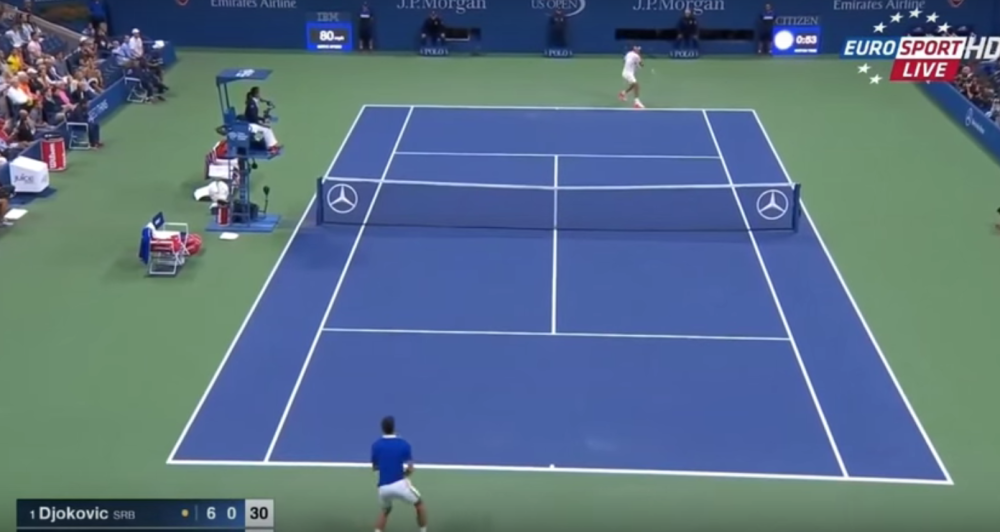
The courts are made slower by adjusting the amount of sand or granular items in the surface’s top layer, or the more recent switch from asphalt to cement underneath each court.
Henin believes that variety in style of play is missing and when she spots it, it is a refreshing move. “The speed of the game is very different now. So it is very difficult to pull off a drop shot at that speed. We still see a little bit of that. I like it when a little bit of that is shown. Some variation is needed and I like it when there are different kind of personalities and different kind of games. I miss that a little bit right now.”
“We see less and less of volleying game now. The surfaces are changing – grass courts are slower than they were, hard courts are slower than they were. Tennis is also getting more physical than it was in the past. Earlier, serving and volley was attractive and better to do, now the game is more physical and surfaces have changed a lot. I think it’s been a big change in the last 15-20 years. Now we see high level of long rallies and long points. It is an evolution of the game,” she concluded.
One of the former tennis queens in the modern era, Justin Henin wouldn't be taking the coaching job. Not very soon. In the long run may be. After emerging from her oblivion she expressed her opinion about the scientific approach of coaching and not only that she opened up about the way the game is changing, type of courts being different comparable to her playing days and her experiences post playing days.
She has worked as a consultant with World No. 6 Elina Svitolina in February 2016 and then with 18-year-old Ukrainian teenager Dayana Yastremska who is presently ranked 38 in the world.
“So I have worked as a consultant and I work with coaches in my academy. But being a coach is a completely different job. There is no guarantee that if you’ve been a champion, you will be a good coach. It is not you anymore, it is your player. And you cannot think about how you were when you were a player. You need to put yourself in another kind of situation. It is not why I’m not a coach yet but is a very different job and I admire the former players who have become very good coaches,” she said on Wednesday on the sidelines of the fifth edition of the Roland Garros wild card series in the capital where Mann Maulik Shah and Shaikh Humera emerged as champions.
“It requires a big investment also. You cannot be a coach and travel 15 weeks, you have to travel 35-40 weeks because you need to be with your player. It’s not about being on the court and teaching how to play. You need to invest on the person and relationship also. At the moment, I don’t have the possibility to do that with my own life, it wouldn’t be honest to do that. I also have a lot to learn so I work with coaches of my academy. I don’t close the door on coaching in the future but not for now,” she added.
If Henin does take coaching, she would witness a very different playing style than what it was when she won four Roland Garros titles and seven grand slams in total. With courts becoming slower, the game has become more physical with players preferring to stand from the baseline and indulge in long rallies than move up the net, for the volley, as was the style in the 90s and early part of the millennium.
With that, Henin, who was known for her breathtaking one-handed backhand, believes her beloved groundstroke may be lost soon. “I would regret it if the single-handed backhand went out of the way. The movement is very nice, the two arms getting separated and it also means you have both hands to use your slice and backhand volley also. So it can produce more things, more variety. That’s what we need. With things getting more physical now, the players need more power, more control and it probably gets more control. For me, the single-handed backhand has been natural, I don’t know how it is to hit a double-handed backhand,” she stated.
She wouldn’t be wrong in claiming the courts have become slower. At the 2018 US Open, Roger Federer stated the Flushing Meadows courts were “slowest we’ve seen in years”. And that was confirmed by the tournament director David Brewer.
The courts are made slower by adjusting the amount of sand or granular items in the surface’s top layer, or the more recent switch from asphalt to cement underneath each court.
Henin believes that variety in style of play is missing and when she spots it, it is a refreshing move. “The speed of the game is very different now. So it is very difficult to pull off a drop shot at that speed. We still see a little bit of that. I like it when a little bit of that is shown. Some variation is needed and I like it when there are different kind of personalities and different kind of games. I miss that a little bit right now.”
“We see less and less of volleying game now. The surfaces are changing – grass courts are slower than they were, hard courts are slower than they were. Tennis is also getting more physical than it was in the past. Earlier, serving and volley was attractive and better to do, now the game is more physical and surfaces have changed a lot. I think it’s been a big change in the last 15-20 years. Now we see high level of long rallies and long points. It is an evolution of the game,” she concluded.
Conclusion:

